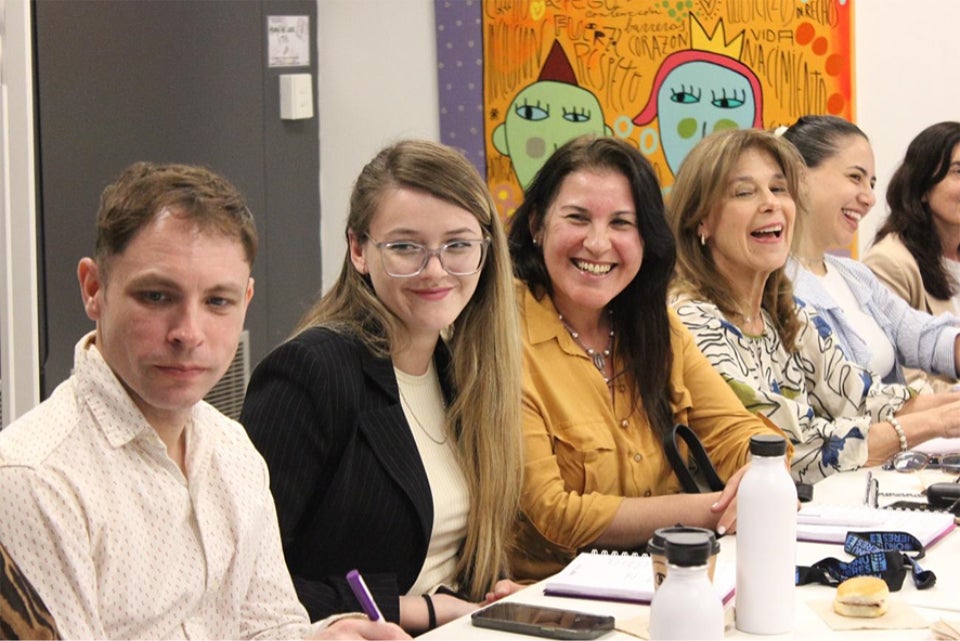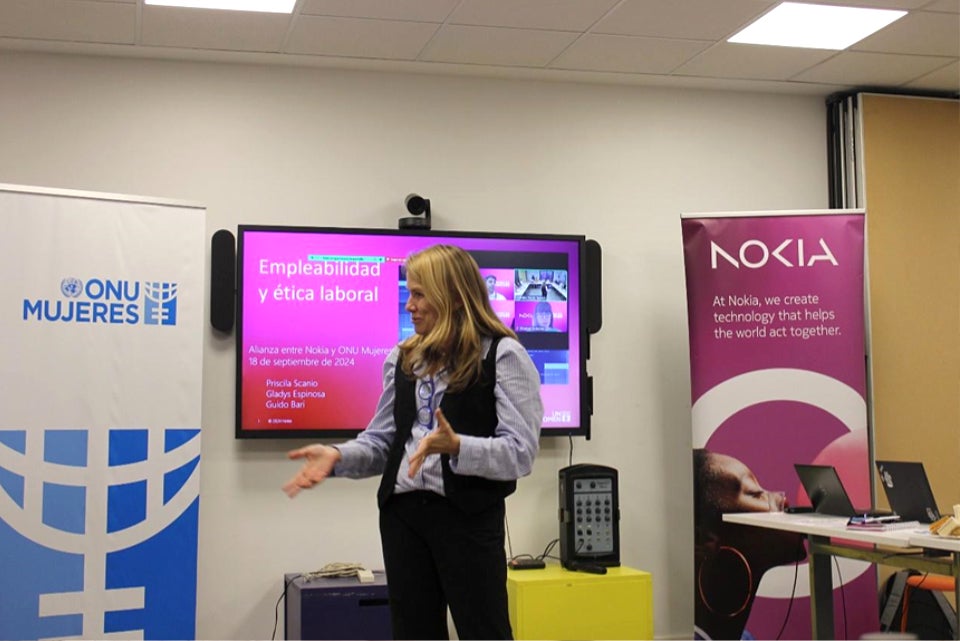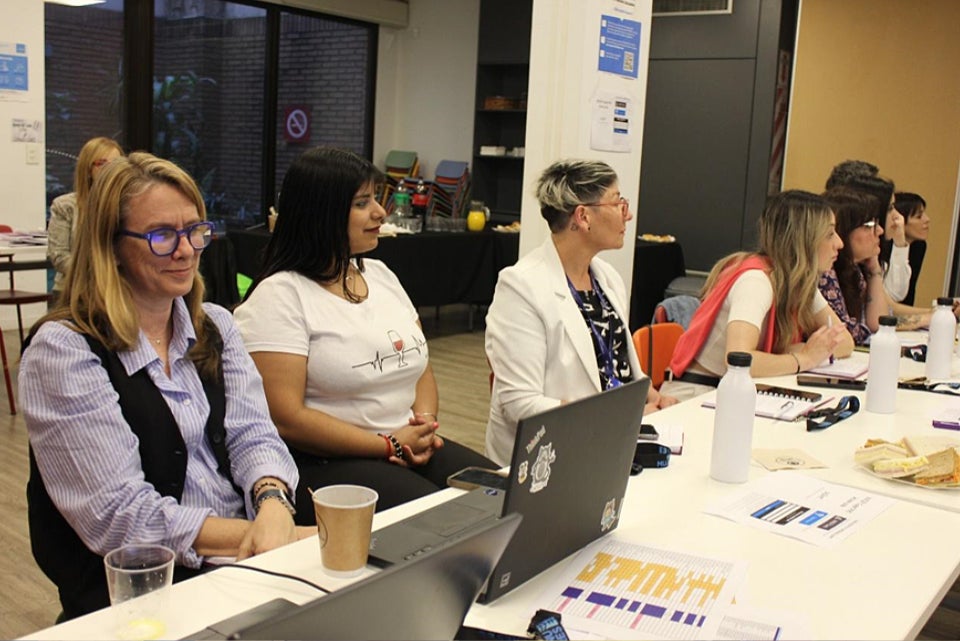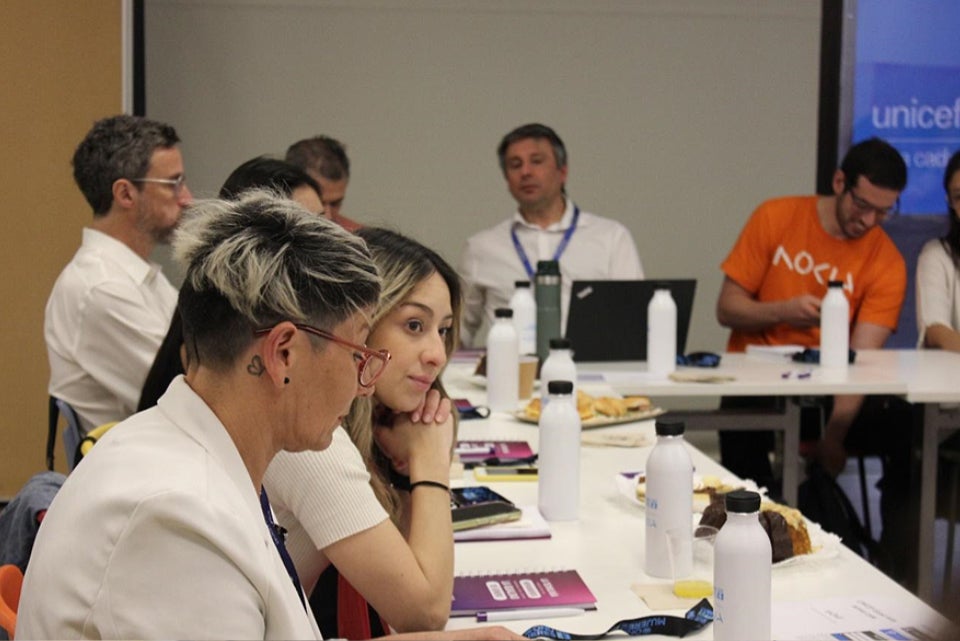Women entrepreneurs bridge the digital gap to boost their businesses with Nokia and UN Women Initiative in Argentina
Date:

Recognizing the transformative potential of technology to accelerate progress on gender equality and bridge the digital divide, UN Women and Nokia launched the second phase of their global partnership to promote women's empowerment through the use of digital solutions, expanding the results to five new regions.
In 2024, Argentina was selected as the only country in Latin America and the Caribbean to implement this pilot initiative, along with Saudi Arabia, the Philippines, India, Jordan, South Africa, Tunisia and Turkey.
The initiative between UN Women and Nokia is presented as an example of an innovative partnership, which directly involves company staff in the role of facilitators and tutors of the training topics.
"Being part of this initiative created a special and transformative dynamic for the entire Nokia team. We witnessed how digitalisation has a real impact on women's lives. Thanks to the support of UN Women and through technology, more women acquired skills that will enable them to have a more inclusive and equitable future," said Ana Martinez, Nokia Lead Volunteer.

Patricia Agustini, a Nokia volunteer, emphasizes that this project "has a great impact on the lives of the participants and at the same time, it can extend the possibility of helping other people, by putting into operation a value chain that generates opportunities for them, their families and the communities in which they develop".
The trainings -defined according to the needs of the participants-, carried out between August and September 2024, focused on improving employability opportunities and entrepreneurship development, through introductory content on technology and digital tools, personal finance applied to entrepreneurship, entrepreneurship and digital marketing, prevention of digital violence and access to employment.
One of the challenges was to design a virtual training. "The remote modality was a challenge for me because of the possible connectivity problems, but from the first session we noticed that it was not a disadvantage at all, on the contrary, it was an advantage to allow a great participation," says Sergio Marcovecchio, Nokia volunteer.
In this first phase, the capacities of 60 women - 48 certified - from the metropolitan area of Buenos Aires, Neuquén and the Gran Chaco region (northwest of the country), many of whom had already participated in other UN Women projects, were strengthened to maximize impact and ensure sustainable results in their life trajectories.
One of the participants, Carina Rojas (Formosa, northwest Argentina), says she learned "how to use digital tools to better organize work and protect company information".
In 2018, Carina founded a creative sewing social enterprise in Formosa led by women heads of household where they make items from recycled waste and fabrics from the companies they work with.
"I used to be intimidated by technology, but now I see it as an ally that makes my work easier. I can manage my projects better and make informed decisions. The course gave me the confidence to continue learning and to apply what I learned in my business," says Carina about how she learned to optimize the resources of her business.
Carina emphasizes that she would like to continue empowering more women in her community. "I would really like to be a trainer, especially to bring these technological tools to the rural women of Formosa, who are the engine of their households with their farms, gardens and local production.
Micaela Castillo (Buenos Aires) said she found the class on digital tools and finance very useful. "Marketing is the visible face, but finances are the basis, and bad management can lead to loss of resources, time and money”.

Thanks to the knowledge acquired, Micaela optimised her stock control, created a database of her clientele and improved the security of her wine business' social networks.
"I used AI to put together a script with important points for a meeting. I also found out about the professional I was going to meet, I looked for commonalities between my venture and his company to make it look useful," explains Micaela.
Micaela would also like to share her experience with other women entrepreneurs and continue her training. "It would make me very happy to be able to push other women. I would like to acquire knowledge in languages, the courses are expensive and it is a tool that opens doors".
In addition to the trainings, a team of Nokia volunteers, together with UN Women in Argentina, will provide mentoring to participants to resolve doubts, strengthen their digital skills and accompany them during the learning process.
"Many of them reinvented themselves in order to progress and improve their quality of life and that of their families," explains Gladys Espinosa, a Nokia volunteer.
In turn, volunteer Tatiana Flores stresses that, through the classes, the participants progressed and gained confidence to present their points of view. "This project has a positive impact, building confidence, encouraging them and making them feel supported”.
The training also helped to strengthen the leadership of the women entrepreneurs and to gain autonomy in decision-making. "The issue of trust is very important to dilute the so-called glass ceilings," says Sergio Marcovecchio, a Nokia volunteer.

The implementation of the project is aligned with UN Women's global Strategic Plan 2022-2025 and contributes to Nokia's implementation of the Women's Empowerment Principles (WEPs).
This initiative reflects the potential of technology to accelerate the strengthening of women's entrepreneurship and income generation and bridge the digital divide. In this scenario, the private sector is committed to leveraging the use of ICTs to promote women's empowerment worldwide.
“The fact that our corporation is entering into an agreement with an organization as influential as UN Women demonstrates the commitment of both entities to advancing the goal of achieving gender equality" says Sergio, a Nokia volunteer.
One of the findings of the partnership between UN Women and Nokia is the high replication potential of this initiative to empower women in other territories. "The programme could easily be scaled up and replicated in other countries and regions”.